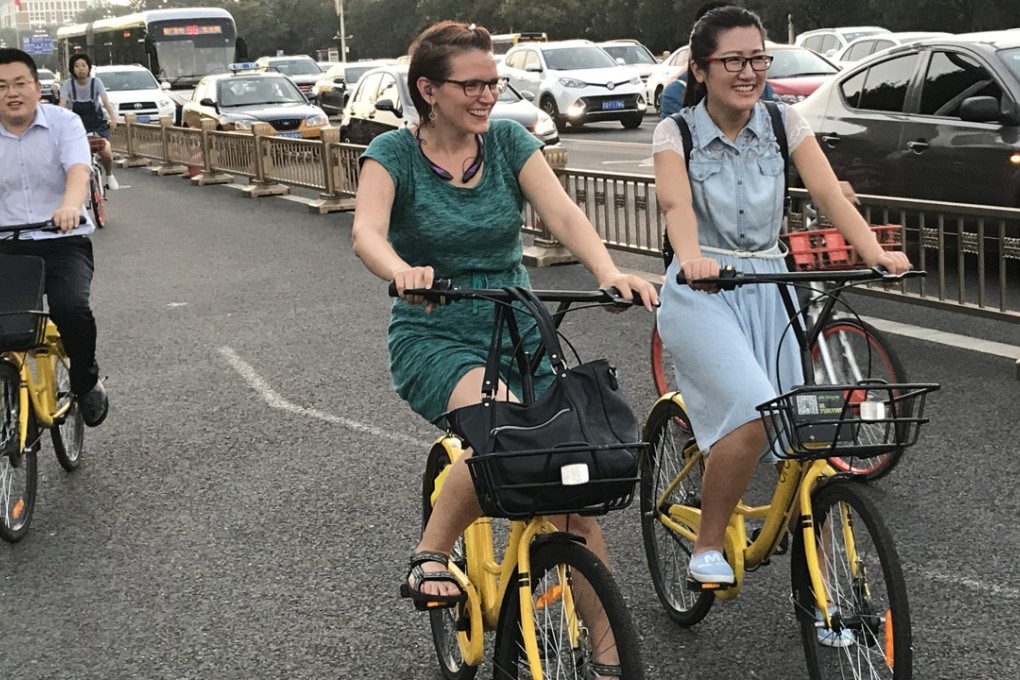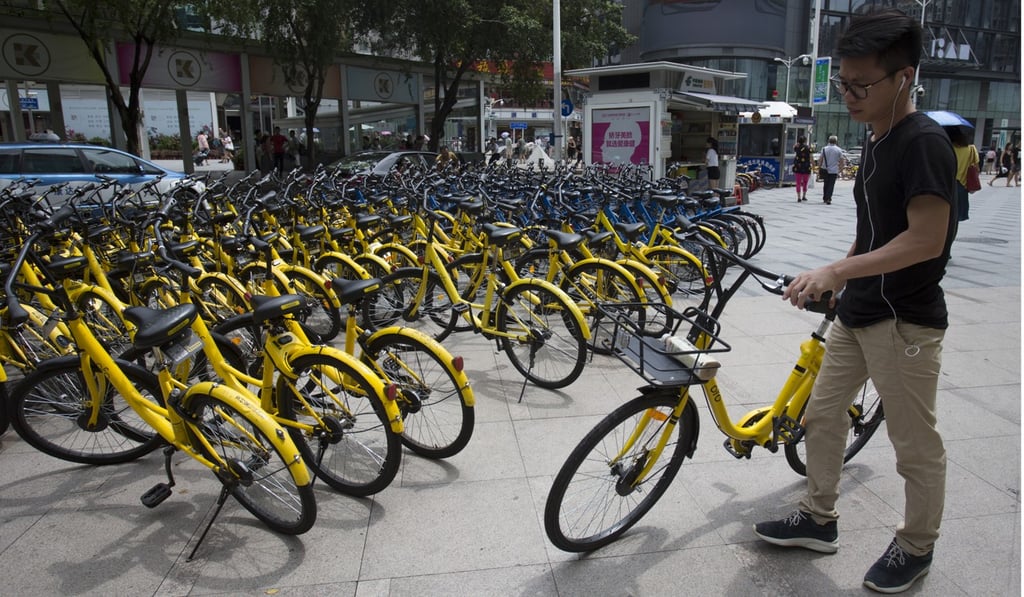Advertisement
Are China’s bike-sharing services oversharing?
Chinese firms Mobike and Ofo are in a race with oBike of Singapore to capture the Asian market – but there are roadblocks ahead, including a backlash against illegal parking
Reading Time:4 minutes
Why you can trust SCMP

Indonesia ’s minister of transport Budi Karya Sumadi had a busy schedule when he accompanied President Joko Widodo in May to the recent Belt and Road Summit in Beijing, but he still made time to try out the country’s latest transport craze, bike sharing.
With a wide smile on his face, Sumadi posed for photographs as he hopped onto a bright orange bike operated by Mobike, one of China’s major bike-sharing companies. Impressed by the sophisticated system, the transport chief intends to adopt it in his country, particularly at Indonesian universities.
“[Had] fun trying out bike sharing in Beijing,” Sumadi wrote on his Twitter account. “The bike is [equipped with] GPS and we use a mobile app to scan the bar code to unlock the bike.”
Advertisement

Metropolises in Southeast Asia are starting to embrace bike sharing as a tool to address their increasingly chaotic, polluted roads. Industry experts warn, however, that bike-sharing businesses must not discount the challenges they face in large cities, from infrastructural limits to the habits of commuters.
Advertisement
Still, Chinese dockless bike-sharing behemoths such as Mobike and Ofo have been firing on all cylinders to expand in Southeast Asia. In the past two months, both companies have made forays into Malaysia and Thailand, adding to their presence in Singapore. In these three countries, Mobike and Ofo are in a three-way race with Singapore-based oBike, which operates in 30 cities in 10 countries including Germany, Austria, Britain, and the Netherlands. Ofo is backed by China’s e-commerce firm Alibaba, which is the owner of the South China Morning Post, Mobike is backed by tech giant Tencent.
Advertisement
Select Voice
Select Speed
1.00x